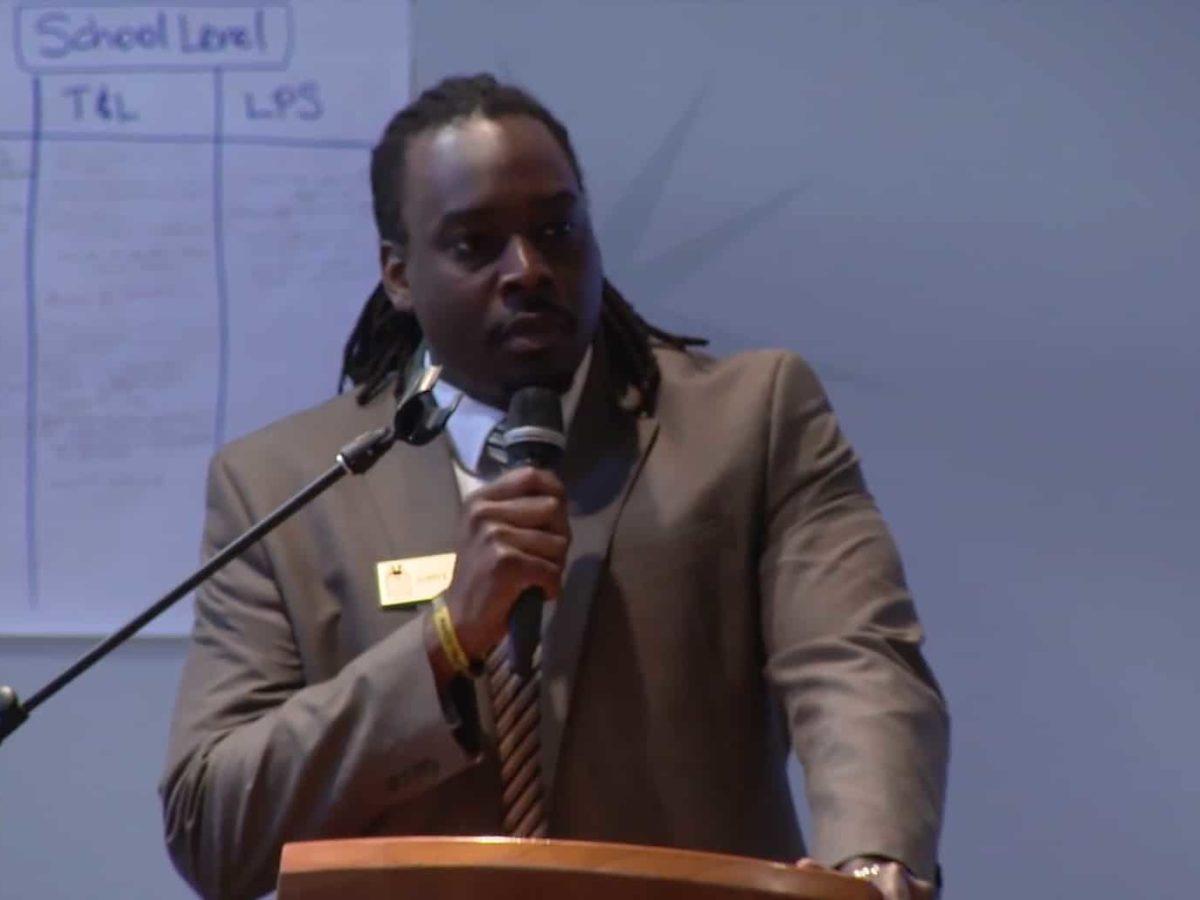

The Public School Forum of North Carolina was founded in 1986. Since that time they have built a reputation as a “think and do” tank focused on researching complex issues such as school financing while also managing programs such as Teaching Fellows.
The Forum has now convened Study Group XVI to explore issues facing North Carolina schools today including racial equity, low-performing schools, and trauma in schools. The overarching effort is co-chaired by Dr. Dudley Flood and Dr. Mike Priddy with additional co-chairs for each topic.
Keith Poston, the head of the Public School Forum, explained the choice of topics by saying, “Much attention is rightly paid to the three factors cited in Leandro: high-quality teachers, excellent school leaders, and adequate resources. But what we realized in talking with education leaders as we considered the study group’s direction was that we can’t continue to focus on those factors as though they exist in a vacuum. In fact, they exist within systems that have their own complex dynamics and bump up every day against issues including racial inequity, poverty, and childhood trauma.”
Poston went on to say, “Many of our state’s leaders are from parts of the state, both urban and rural, that see firsthand every day the negative impacts of racial inequity, poverty, and the impact of trauma on child development and learning. Moreover, in too many of those locations, schools and districts are labeled ‘low-performing.’ Rather than being a condemnation of the schools and districts themselves, those labels are simply further evidence that something must be done to alleviate the underlying, systemic issues facing students, families, and educators in those locales.”
The Study Group kicked off with over 100 individuals from across North Carolina last week with a discussion of some of the issues facing our education system, including the following numbers:
500,000 children in poverty in North Carolina
No school with more than 85 percent free and reduced lunch received an A in the latest achievement rankings
In Charlotte, 45 percent of black students attend high-poverty schools, while only 6 percent of whites do the same
In Wake County, no schools were over 60 percent free and reduced lunch in 2000, today 12 schools fall within that category
Dr. Mike Priddy put the numbers in context by encouraging the audience to consider the “geography of opportunity,” explaining that we must understand the way that politics, poverty, and race all intersect within our schools. He pointed out that due to the way that North Carolina finances their schools districts with manufacturing and developed land will always begin with an advantage over school districts that are more rural in nature.
Dr. Dudley Flood recounted stories from his time both as a teacher and desegregating North Carolina districts. He earned vigorous applause when he declared,
“You teach to the expectations you have for the students you have.”
Attorney Ann McColl also gave the group a lesson on the history of education, voting, and racial equity in North Carolina. McColl explained the North Carolina tradition of investing in education through an exploration of past constitutional conventions. She quoted the Reverend Samuel Ashley who once said,
“The people have a right to the privilege of education and it is the duty of the state to guard and maintain that right.”
Each working group then introduced their topics to the full room with a goal of placing their topic within the context of the aims of the Study Group.
Dr. Katie Rosanbalm will co-chair the Committee on Trauma & Learning. Dr. Rosanbalm is a research scholar with the Center for Child and Family Policy at Duke University. She spoke to the science behind the impacts of trauma on learning. When asked about her goal for the Committee on Trauma & Learning, Dr. Rosanbalm replied, “I think we need to look at models in Boston, Washington, Wisconsin, and Australia for guidance. But we also need to shape them to fit North Carolina – what are our strengths that we can play to? What are our resources that we can draw on to build success? And what specific outcomes do we want to see here? TLPI in Boston really emphasizes the fact that the trauma-sensitive schools approach is a framework, not a model. It does not specify content or curricula – just a new way of approaching students, discipline, and teaching. The process that a school goes through to develop their specific approach and plan is central to the framework. Each school, district, etc. must have a hunger for this, a champion to keep it moving, and should work through the process themselves to find their answers (with technical assistance and support from some trauma-sensitive trainers/infrastructure). North Carolina is a fiercely independent state, so I think this flexibility will appeal here.”
Representative Graig Meyer, who is co-chair of the Committee on Low-Performing Schools, called on the group to send him legislation that he could carry forward in the General Assembly while recounting a story of visiting a school in Halifax County.
Meyer’s comments built on the theme of finding common ground to create positive change for education in North Carolina that was present throughout the event. James Ford, who is on the staff of the Forum and who was the 2014 North Carolina Teacher of the Year, set the tone early by calling on the room to consider “the pregnancy of potential” in North Carolina as the Study Group moves forward with surfacing potential solutions.
We will monitor the progress of Study Group XVI throughout the process.


